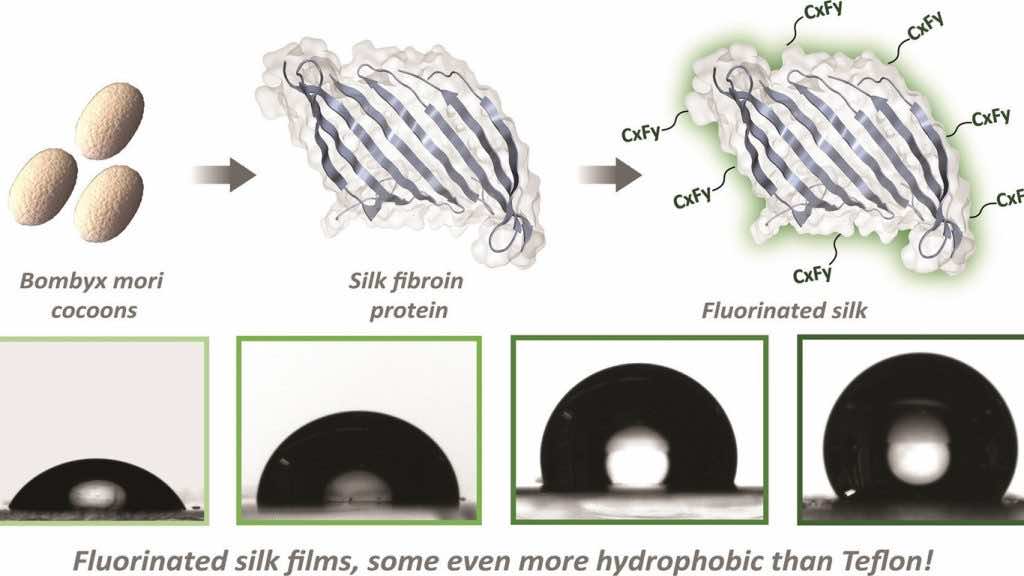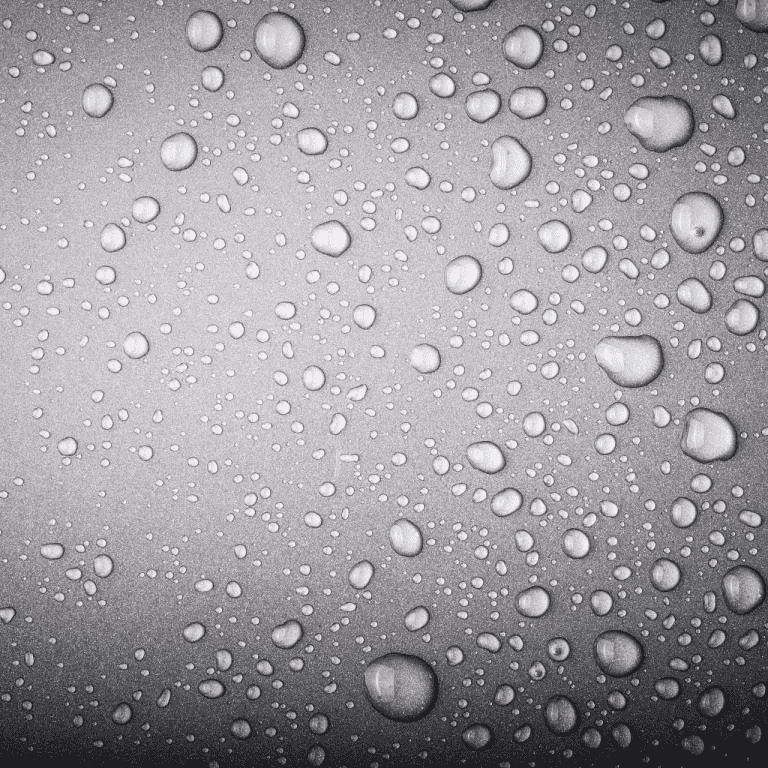Researchers at Tufts University have come up with a method for developing silk-based materials that will not attach to water and show non-stick properties that are better than the ones available at the moment.
“What makes silk such a unique material is that not only can it take on a wide range of forms and shapes, but one can easily change its properties by chemically modifying the silk fibroin,” said Krishna Kumar, Robinson Professor of Chemistry at Tufts.
“If we want to make orthopedic screws that are absorbed by the body at different rates using silk fibroin, we modify the chemistry,” he said. “If we want to create a blood sensor that detects oxygen, or glucose, or other blood components, we modify the chemistry. In this study, we modified silk fibroin to repel water, and we can do it in a way that can ‘tune’ the material to be more or less water repellant.”
They were successful in achieving this high level of non-stickiness by covering the surface of the silk fibroin with short chemical chains containing carbon and fluorine, called perfluorocarbons. These chains do not react with other chemicals. Also, they do not interact with proteins and other biological chemicals present in the body.

The amazing non-stick property was tested by observing how water molecules bead up on the surface of the new material. They discovered that on non-stick silk molded into bars using the highest level of perfluorocarbons, the water was rejected and it moved on the surface in the form of drops.
It is interesting to note that it was not just for water molecules. In fact, materials with water as a major component were also rolling off the non-stick silk.
These silk-based non-stick surfaces could now be used as a safer alternative to commercially available non-stick coatings that can be absorbed by the body.
“The success we had with modifying silk to repel water extends our successes with chemically modifying silk for other functionalities—such as the ability to change color, conduct electrical charge, or persist or degrade in a biological environment,” said David Kaplan, Stern Family Professor of Engineering at Tufts.
“As a protein, silk lends itself well to modular chemistry – the ability to ‘plug in’ different functional components on a natural scaffold.”
This can be used in medical devices, automotive windshields where rainwater just rolls off without using wipers, coatings on metals that help prevent rust, or on fabrics to make them easier to clean.

“Modifying medical devices to prevent detrimental interactions with water and other biologics has the potential to preserve strength and integrity for as long as they are needed,” explained Julia Fountain, a graduate student in Kumar’s lab and co-author of the paper.
“Silk is already relatively inert to the immune system, so tuning its ability to repel cells or other substances could make it even more useful.”
The study was published in the journal ChemBioChem.


